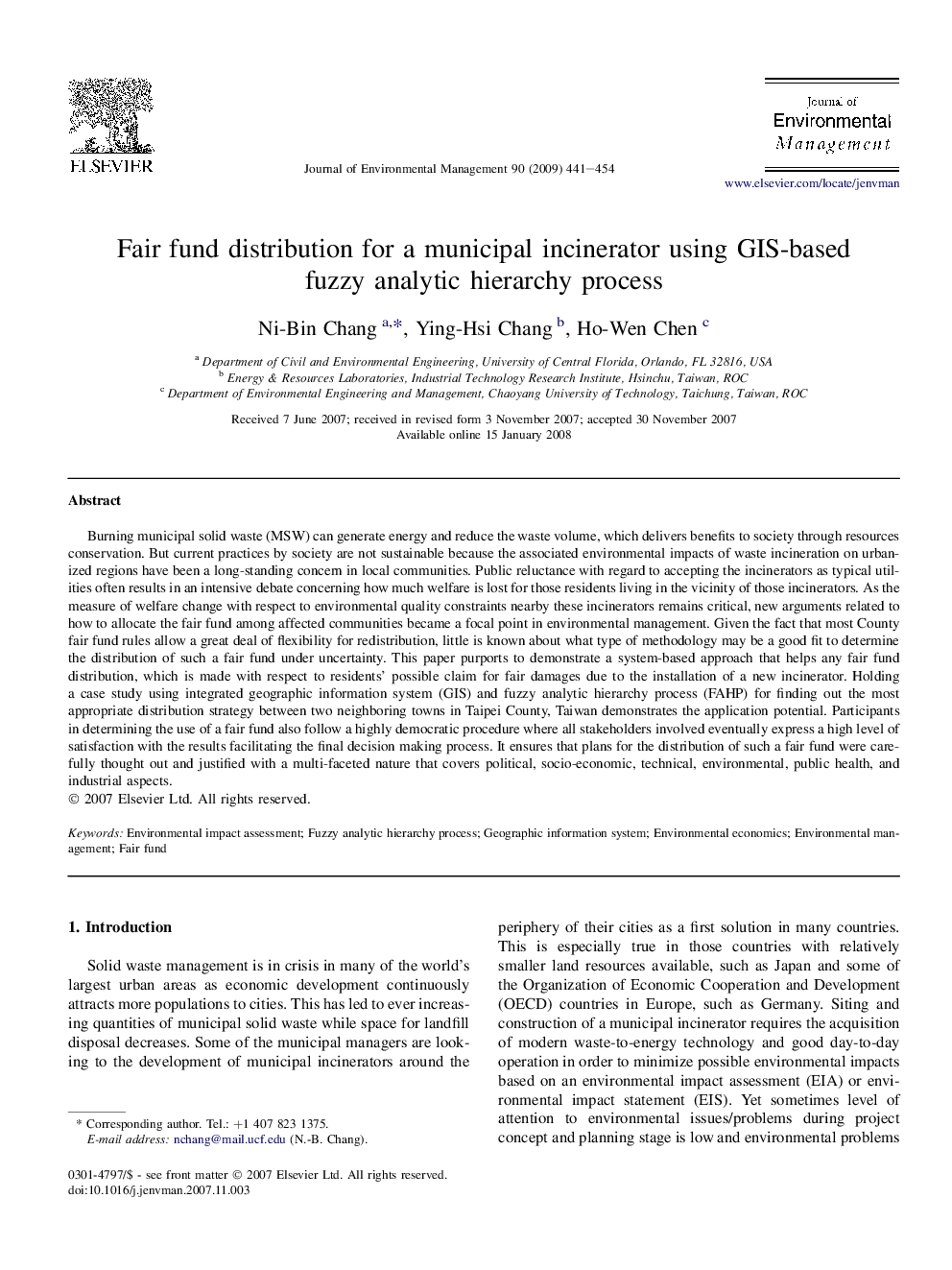| Article ID | Journal | Published Year | Pages | File Type |
|---|---|---|---|---|
| 1058111 | Journal of Environmental Management | 2009 | 14 Pages |
Burning municipal solid waste (MSW) can generate energy and reduce the waste volume, which delivers benefits to society through resources conservation. But current practices by society are not sustainable because the associated environmental impacts of waste incineration on urbanized regions have been a long-standing concern in local communities. Public reluctance with regard to accepting the incinerators as typical utilities often results in an intensive debate concerning how much welfare is lost for those residents living in the vicinity of those incinerators. As the measure of welfare change with respect to environmental quality constraints nearby these incinerators remains critical, new arguments related to how to allocate the fair fund among affected communities became a focal point in environmental management. Given the fact that most County fair fund rules allow a great deal of flexibility for redistribution, little is known about what type of methodology may be a good fit to determine the distribution of such a fair fund under uncertainty. This paper purports to demonstrate a system-based approach that helps any fair fund distribution, which is made with respect to residents' possible claim for fair damages due to the installation of a new incinerator. Holding a case study using integrated geographic information system (GIS) and fuzzy analytic hierarchy process (FAHP) for finding out the most appropriate distribution strategy between two neighboring towns in Taipei County, Taiwan demonstrates the application potential. Participants in determining the use of a fair fund also follow a highly democratic procedure where all stakeholders involved eventually express a high level of satisfaction with the results facilitating the final decision making process. It ensures that plans for the distribution of such a fair fund were carefully thought out and justified with a multi-faceted nature that covers political, socio-economic, technical, environmental, public health, and industrial aspects.
